Uji, a quaint town nestled in the heart of Kyoto, offers a captivating blend of Japan’s rich cultural heritage and serene natural beauty. Visitors can enjoy the tranquility of UNESCO-listed shrines, explore the art of traditional tea ceremonies, and wander through verdant gardens. This historic destination beckons travelers to discover the profound connection between spirituality, nature, and the celebrated tea culture that has defined the region for centuries.
This experience made our article of What Are The Best Tours & Experiences In Uji? Our Top 14 Picks.
- Key Points
- Exploring the Historic Uji
- Encountering the Tranquil Ujigami Shrine
- Taking in the Beauty of Byodoin Temple
- Indulging in the Gyokuro Tea Experience
- Wandering Through Uji Park and Koshoji Temple
- Discovering the Charm of Byodoin Omotesando
- Understanding the Intersection of Tea and Buddhism
- Preparing for Your Uplifting Uji Adventure
- Frequently Asked Questions
- Is the Tour Suitable for People With Mobility Issues?
- What Happens if I Need to Cancel My Booking?
- Can I Purchase Tea and Other Souvenirs During the Tour?
- How Do I Get to the Starting Point of the Tour?
- Is There Any Flexibility in the Tour Itinerary?
- The Sum Up
- More Tour Reviews in Uji
- Still browsing? Here are more Uji experiences we've covered recently
Key Points
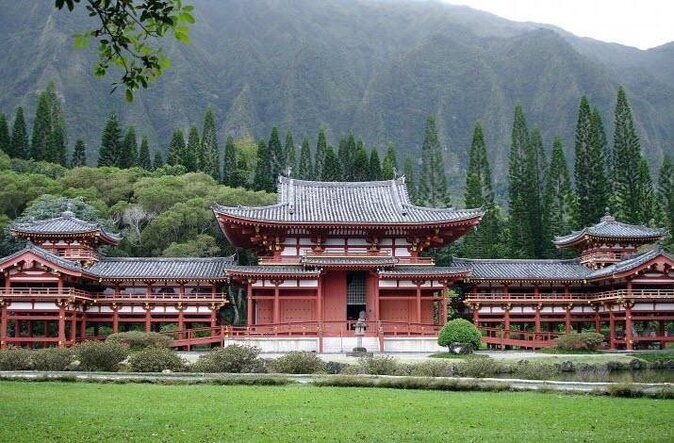
- Uji, the cultural heart of Kyoto, is renowned for its spirituality, tea traditions, and UNESCO World Heritage sites like Ujigami Shrine and Byodoin Temple.
- Ujigami Shrine, with its serene atmosphere and well-preserved architecture, reflects traditional Japanese spirituality and the relationship between Shinto and tea culture.
- Byodoin Temple, a UNESCO World Heritage site, showcases Japanese architectural brilliance through its Phoenix Hall and tranquil gardens, creating a meditative ambiance.
- The Gyokuro tea experience in Uji provides insight into the refined world of Japanese tea culture, including its production, preparation, and cultural significance.
- The deep intertwining of tea and Buddhist practices in Japan is exemplified through the contemplative nature of tea ceremonies and the spiritual symbolism of Byodoin Temple.
Exploring the Historic Uji
As the cultural heart of Kyoto, the historic town of Uji offers visitors a chance to enjoy the rich tapestry of Japanese spirituality and tea traditions.
Nestled along the serene Uji River, Uji is home to two UNESCO World Heritage sites: the 12th-century Ujigami Shrine and the iconic Byodoin Temple, whose stunning Phoenix Hall is depicted on the 10 Yen coin.
Visitors can explore the tranquil Uji Park, stroll down the historic Byodoin Omotesando, and discover hidden tea shops that showcase the region’s renowned Gyokuro and Uji matcha.
This picturesque town provides a peaceful respite from the bustle of Kyoto.
Looking for more options in Uji? We've reviewed plenty of other experiences.
Encountering the Tranquil Ujigami Shrine
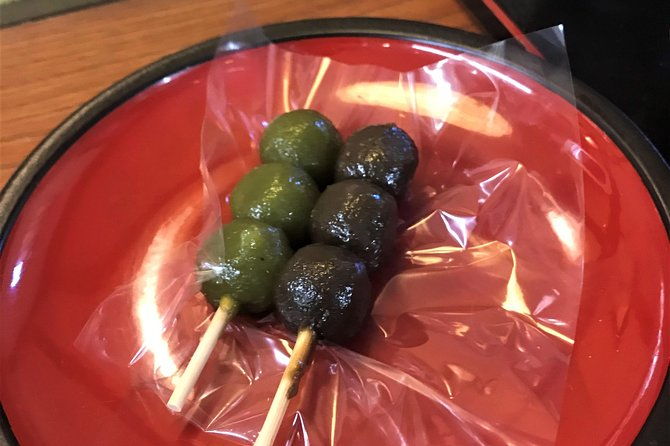
Visitors to Uji are drawn to the tranquil and historic Ujigami Shrine, one of the two UNESCO World Heritage sites in the area.
Dating back to the 12th century, this Shinto shrine is renowned for its serene atmosphere and well-preserved architecture. The shrine’s simplistic, yet elegant design reflects the essence of traditional Japanese spirituality.
Visitors can explore the grounds, admire the wooden structures, and gain insights into the intertwining relationship between Shinto and the tea culture that is deeply rooted in Uji.
The shrine’s peaceful setting provides a welcomed respite from the bustling streets of Kyoto.
Taking in the Beauty of Byodoin Temple
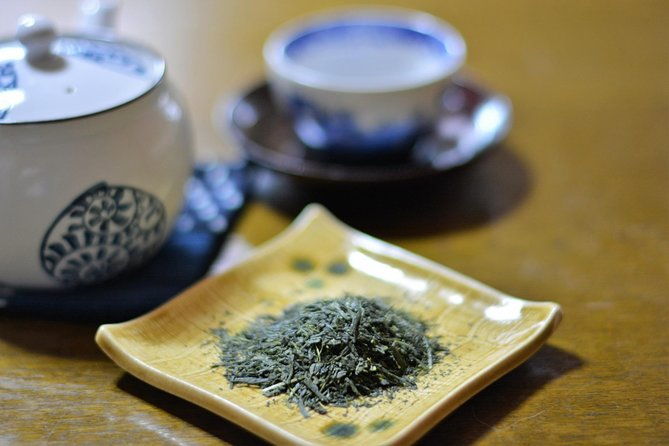
Byodoin Temple, a UNESCO World Heritage site, stands as a stunning embodiment of Japanese architectural and artistic brilliance.
Visitors are captivated by the temple’s Phoenix Hall, a magnificent structure with a golden statue of the Buddha at its center. The temple’s grounds offer tranquil gardens and a reflecting pond, providing a peaceful respite from the bustling city.
As part of the Uplifting Uji tour, guests have the opportunity to explore Byodoin’s rich history and symbolism, gaining deeper appreciation for the intertwining of Buddhism and Japanese culture.
The temple’s serene ambiance and exquisite design leave a lasting impression on all who visit.
Indulging in the Gyokuro Tea Experience
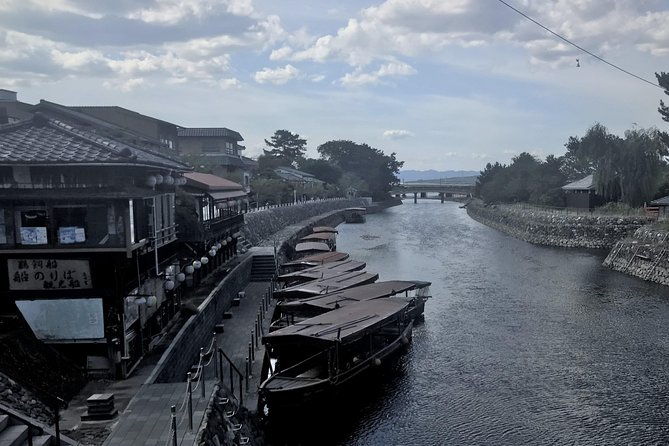
The tour’s tea experience takes center stage at a traditional Gyokuro teahouse in Uji. Participants are invited to savor the renowned Gyokuro green tea, a delicate and sophisticated variety.
The experience includes:
- A detailed explanation of the tea’s production, flavor profiles, and cultural significance.
- A carefully orchestrated tea ceremony, showcasing the artistry and precision of traditional Japanese tea preparation.
- The opportunity to sip the fragrant Gyokuro tea and enjoy a complementary Japanese sweet, enhancing the sensory journey.
This immersive tea tasting provides a captivating glimpse into the refined world of Japanese tea culture.
Wandering Through Uji Park and Koshoji Temple
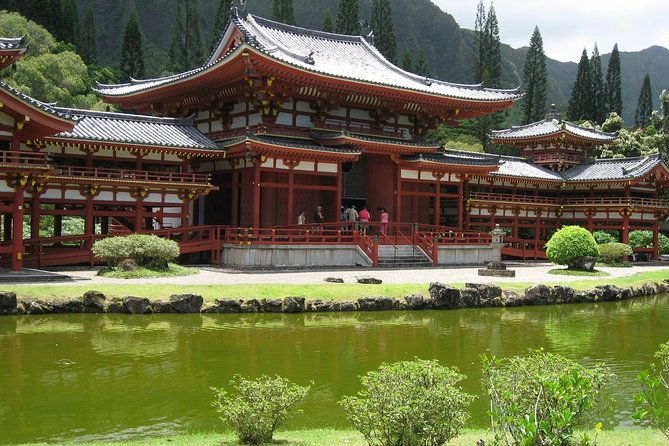
After exploring the renowned Gyokuro tea house, the tour continues its culture by guiding participants through the serene expanse of Uji Park.
Nestled along the Uji River, the park offers a tranquil respite from the bustling city. Visitors can stroll through the picturesque landscape, taking in the sight of historic pagodas and bridges.
The tour then leads them to the revered Koshoji Temple, a Buddhist sanctuary dating back to the 12th century. Here, guests can observe the intricate architecture and learn about the temple’s significance in Uji’s rich spiritual heritage.
- Matcha Tour in Uji, Home of Culture, With a Local Guide
- Private Tour To Arashiyama and Uji W/Spanish Speaking Guide
- Kyoto: Enjoy Byodoin Temple and Tea Sweets – 90 Min Tour
- Slow Cycling Tour at Ujis Matcha Green Tea Fields and Heritage
- Kyoto Matcha Green Tea Tour
- Uji Tea Ceremony and UNESCO Heritage Walking Tour
Discovering the Charm of Byodoin Omotesando

From the serene Uji Park, the tour proceeds to the historic Byodoin Omotesando, a charming street lined with traditional tea shops and specialty stores.
Visitors can:
- Browse the selection of high-quality matcha, sencha, and other premium teas at the local tea houses.
- Admire the architectural features of the historic buildings, some dating back centuries.
- Savor local delicacies, such as Uji-style green tea ice cream, at the quaint cafes and eateries.
The peaceful atmosphere and opportunity to take in Japanese tea culture make Byodoin Omotesando a highlight of the Uplifting Uji tour.
Understanding the Intersection of Tea and Buddhism
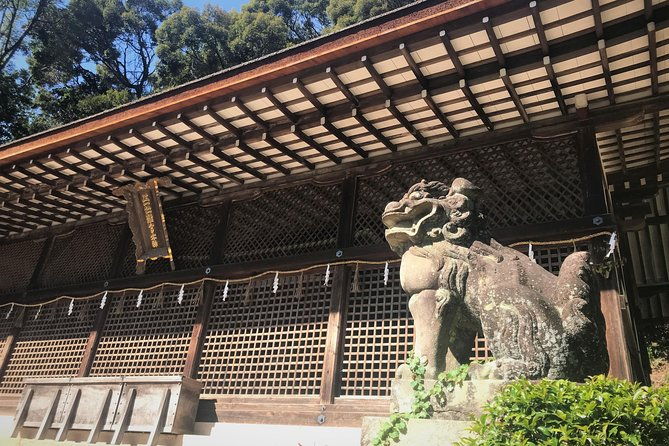
Why does the Uplifting Uji tour emphasize the cultural intersections of tea and Buddhism?
Tea has long been deeply intertwined with Buddhist practices in Japan. The serene tea ceremonies mirror the contemplative nature of Buddhist rituals.
Byodoin Temple, a UNESCO site on the tour, houses the Phoenix Hall, a masterpiece of Pure Land Buddhist architecture. The tranquil gardens and ponds around the temple evoke a meditative atmosphere.
The tour’s tea experiences at historic teahouses provide insight into how tea became a vehicle for spiritual enlightenment.
Preparing for Your Uplifting Uji Adventure
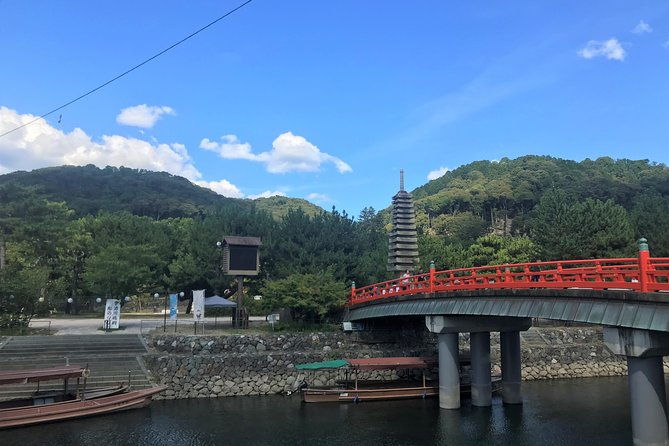
Embarking on the Uplifting Uji tour requires some thoughtful preparation to ensure a seamless and enriching experience.
Visitors should consider the following:
- Accessibility: The tour involves moderate physical activity and is not wheelchair accessible, so participants should ensure they can comfortably navigate the sites.
- Dress Code: Comfortable, conservative attire is recommended, as some temples have dress requirements.
- Cash Handling: Having cash on hand is advised, as some tea shops and smaller vendors may not accept credit cards.
Frequently Asked Questions
Is the Tour Suitable for People With Mobility Issues?
The tour is not wheelchair accessible and requires moderate physical fitness, making it unsuitable for travelers with significant mobility issues. The tour involves walking between multiple locations and sites.
What Happens if I Need to Cancel My Booking?
The tour allows free cancellation up to 24 hours before the experience. Confirmation is received upon booking, and the tour is not wheelchair accessible, requiring moderate physical fitness.
Can I Purchase Tea and Other Souvenirs During the Tour?
The tour includes a tea house experience, but does not provide time for extensive shopping. However, there are opportunities to purchase tea and souvenirs at the various tea shops along the Byodoin Omotesando during the tour’s free time.
How Do I Get to the Starting Point of the Tour?
The tour starts and ends at the Keihanuji Ekimae Information Centre. Detailed directions are provided upon booking to help guests arrive at the meeting location. The guide will be waiting to greet and lead the group.
Is There Any Flexibility in the Tour Itinerary?
The tour itinerary is generally fixed, but the guides may accommodate minor changes or requests from participants within reason. The tour emphasizes the cultural highlights and does not offer significant flexibility to alter the core experiences.
The Sum Up
Uji, a historic destination in Kyoto, offers visitors the opportunity to enjoy Japan’s rich cultural heritage. From the serene Ujigami Shrine and Byodoin Temple to the renowned Gyokuro tea ceremony, this serene locale invites contemplation and connection with nature and spirituality. Whether wandering the tranquil gardens or exploring the intersection of tea and Buddhism, Uji provides an uplifting and enlightening experience.
📍 This experience made our list of the 14 best Tours & Experiences in Uji
More Tour Reviews in Uji
- Uji Walking Tour World Heritage Temple and Matcha Custom Made
- Uji: Kyoto Tea and Religious Culture Private Immersion Tour
- Uji: World Heritage Rickshaw Tour in Uji
- Rickshaw Tour of Uji: Local Insights and Scenic Views
- Osaka: Kyoto & Uji Tour, Kinkakuji, Kiyomizudera, Byodo-in
- Uji: Ultimate Uji Discovery by Rickshaw
Still browsing? Here are more Uji experiences we've covered recently
- What Are The Best Tours & Experiences In Uji? Our Top 14 Picks
- Uji Walking Tour World Heritage Temple and Matcha Custom Made
- Uji: Kyoto Tea and Religious Culture Private Immersion Tour
- Uji: World Heritage Rickshaw Tour in Uji
- Rickshaw Tour of Uji: Local Insights and Scenic Views
- Osaka: Kyoto & Uji Tour, Kinkakuji, Kiyomizudera, Byodo-in
- Uji, More Than Tea Guided Walking Tour 4 Hrs
- 2-day Kansai world ExTour I tour around Osaka,Kyoto,Nara,andUji
- Uji: Ultimate Uji Discovery by Rickshaw with Tea Experience
- Kyoto: Uji: Matcha & UNESCO History Tour with Expert Guide
- Uji Eternal: Temples, Tea, & the Flow of Japanese Tradition
- Kyoto: Uji Matcha Experience and World Heritage Tour
